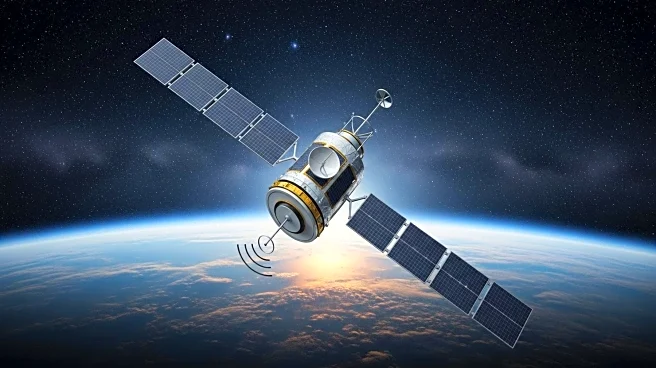What's Happening?
NASA's Flight Opportunities program has introduced a new capability to its services by offering hosted orbital flights. This development allows researchers to have their payloads, which can include technology, experiments, or instruments, hosted in orbit by commercial flight providers. The providers manage the integration, launch, and mission operations, enabling researchers to concentrate on their payload development. This service is positioned as an alternative to using the International Space Station or developing independent spacecraft. The program aims to reduce the time to flight by offering regular multi-customer hosted missions, which are part of the providers' business models. As demand increases, the frequency of these missions is expected to grow. The program also allows researchers to benefit from commercial best practices and capabilities.
Why It's Important?
The expansion of NASA's Flight Opportunities program to include hosted orbital capabilities is significant for the research community and the commercial space industry. It provides a more accessible and potentially cost-effective option for researchers to test and develop new technologies in space. This can accelerate innovation and the deployment of new space technologies, benefiting industries reliant on space-based data and applications. The program's collaboration with commercial providers also highlights the growing role of private companies in space exploration and technology development. This partnership could lead to increased investment and interest in space technology, fostering a more robust space economy.
What's Next?
As the program continues to develop, it is expected that more researchers will take advantage of the hosted orbital capabilities, leading to a higher demand for these services. This could prompt commercial providers to increase the frequency of their missions, further integrating commercial practices into space research. Additionally, the success of this program may encourage other space agencies and private companies to explore similar partnerships, potentially leading to a more collaborative and innovative space exploration environment.
Beyond the Headlines
The introduction of hosted orbital capabilities by NASA's Flight Opportunities program could have long-term implications for the space industry. It may lead to a shift in how space research is conducted, with a greater emphasis on collaboration between public and private sectors. This could also influence policy decisions regarding space exploration and technology development, as the benefits of such partnerships become more apparent. Furthermore, the program's success could inspire new educational and career opportunities in space technology and research, contributing to a more skilled workforce in this field.










